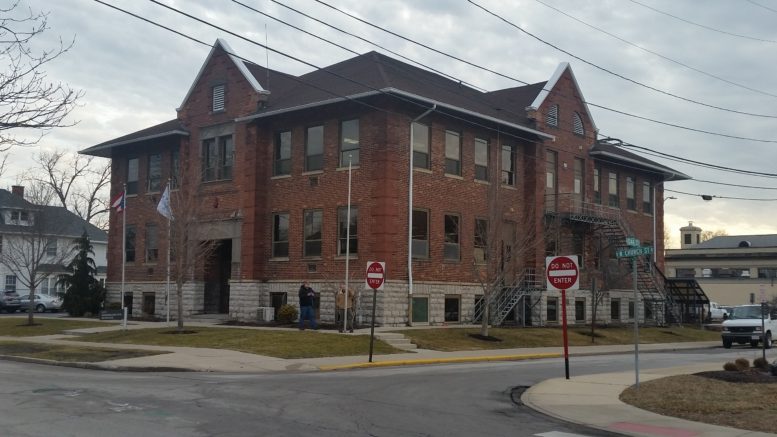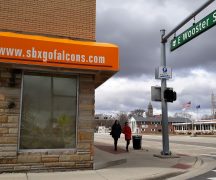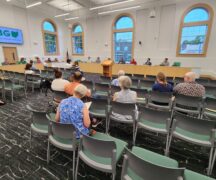By JAN LARSON McLAUGHLIN
BG Independent News
The task assigned to the small group is even more cumbersome than its name – the Bowling Green Community Action Plan Implementation Subcommittee of the Planning Commission.
The group held its first meeting last week to begin tackling a review of the city’s zoning ordinance – a process as sensitive as it is complicated.
“It’s clear this is really intense and is going to take a lot of work,” said Jeff Betts, chairman of the subcommittee.
The last thing the group wants is for residents 20 years from now to say, “Oh my God, what were they thinking,” subcommittee member Mark Hollenbaugh said.
With a stack of reviews and recommendations in front of them, Bowling Green Planning Director Heather Sayler agreed that the job is immense.
“It’s a lot to digest, that’s for sure,” she said.
Council member Bill Herald thanked the subcommittee for its willingness to take on the job.
“It’s easy to get paralyzed because there’s so much to do,” he said. “I really appreciate you tackling this.”
Zoning is so complex for many reasons. First every rule is interwoven with other rules. So if one regulation is tweaked, it could create the need for changes in many other regulations.
“Anything you do with one part is going to affect other parts,” Hollenbaugh said.
And second, zoning is touchy because it tells landowners what they can and cannot do with their property.
“It’s super important to explain the ‘why’ behind it,” so it doesn’t appear like a conspiracy to keep property owners from doing what they want with their land, Betts said.
“Everything needs to be transparent. Everybody needs to know every step of the process,” Hollenbaugh agreed.
A report by a consulting firm, Development Strategies from St. Louis, will be presented to City Council in December. After that, the subcommittee will have more to discuss.
Members of the subcommittee last week talked about the need to not piecemeal the zoning code. Instead of dealing in haste with an issue when it arises, the group wants to plan ahead.
The zoning rules must come first, Betts said, rather than trying to pigeonhole a project into a set of rules.
The goal will be to look ahead. “We need to envision the community we want in making these decisions,” Herald said.
The Community Action Plan completed last year cited inconsistencies in the city’s current zoning ordinance. For example, when a gas station is constructed, the zoning requires certain setbacks and buffers for neighbors. However, for other development that may be as objectionable to neighbors, there are no such requirements, Sayler said.
Ideally, zoning regulations will consider what development will work and won’t work in Bowling Green. The rules will then be tweaked accordingly to encourage investment, Sayler said.
People investing in developing area want to be assured that other property owners in the area will make similar investments, she said.
“What are the reassurances that the neighbors will do the same,” Sayler said.
Zoning rules can be as specific as requiring certain kinds of building materials or plantings.
Two big issues that will be examined are building heights and housing.
It is difficult for developers to get a desired return on their investment when they have strict building height rules, Sayler said.
Housing as been an issue for years – for students and families. The majority of BGSU students now prefer apartment complexes to divided single-family homes, Sayler said. Meanwhile, the city continues to have a shortage of starter housing and higher income apartments that can be found in Perrysburg.
The lack of desired housing has been identified in multiple studies.
“We’ve developed a real Perrysburg complex,” Hess said.
So the subcommittee will look at how zoning might be used to encourage single-family home investments.
“A lot of houses have been chopped up into apartments,” Hollenbaugh said. What becomes of those vacated homes if students leave them for preferred apartment complexes, he asked.
The subcommittee will consider how to make it economically advantageous for property owners to “do the right thing.”
Herald also asked if the city zoning ordinance could “start a clock” on grandfathered properties that don’t comply with zoning rules. So at some point, the properties have to comply with current regulations.
“We can actually tackle it rather than it being the elephant in the room,” he said.





